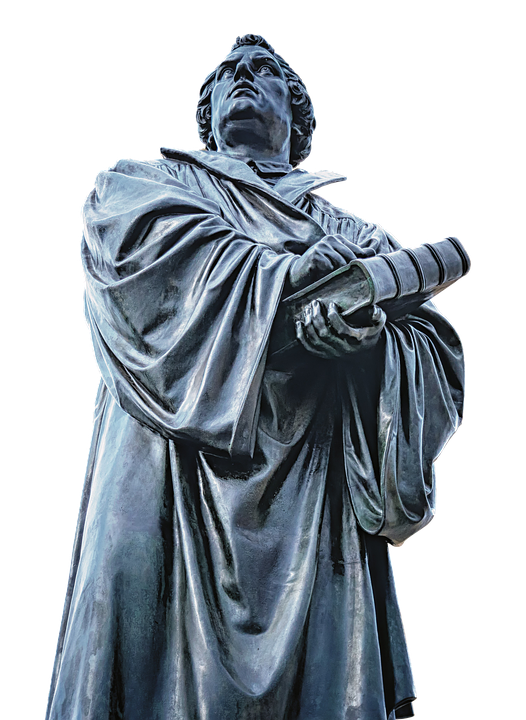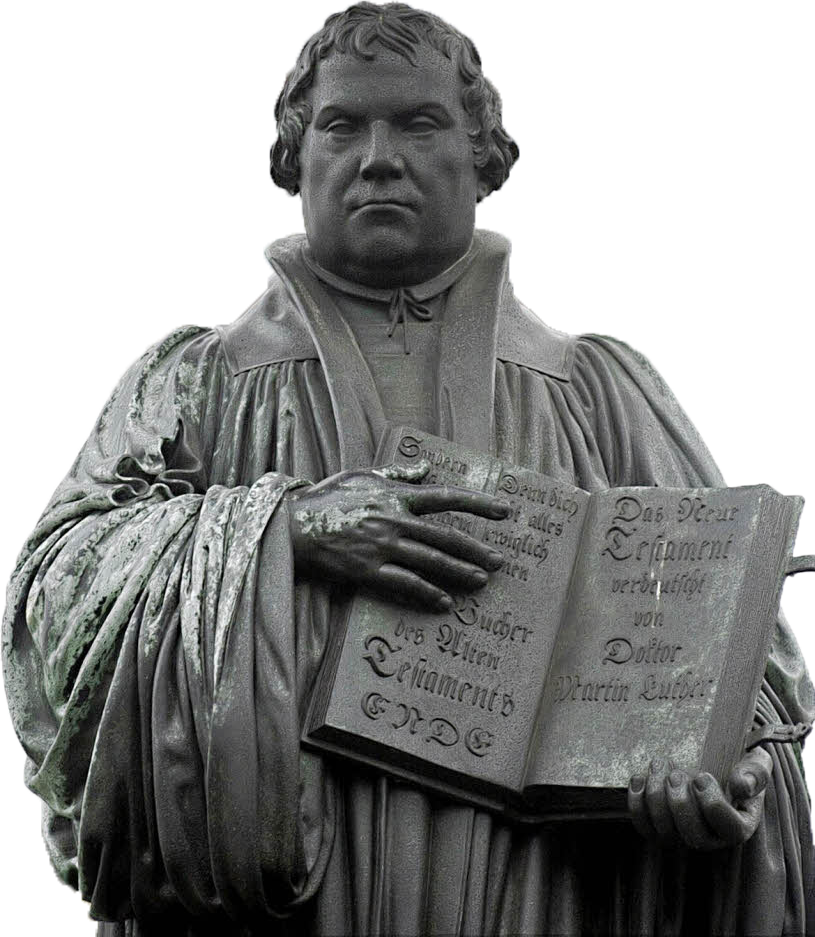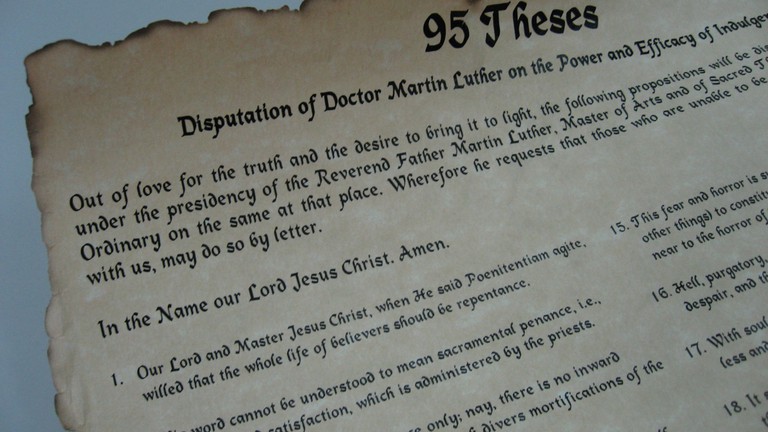 His Early Life
His Early Life
Martin Luther was born on 10th November 1483 into a poor family that lived in Eisleben, a small insignificant German village in the region of Saxony. Before this, his parents, Hans and Margarete Luther, lived near Eisenach, not far from the Wartburg, which years later would prove to be a place of security for Martin at a time when his life was in real danger.
His father was a mine manager who worked hard to pay for Martin to attend law school. Martin began these studies in 1501. In January 1505, he was admitted to the degree of Master of Arts and placed second in a class of seventeen students. However, in the summer of 1505, he was caught in a terrifying storm which resulted in his decision to change his career and become a monk. This decision greatly angered his father. Later that year Martin started his new life in a monastery in the small town of Erfurt. Having given up the attractive prospects of being a lawyer, Martin Luther now seemed to be heading for distinction as a priest and university professor.
Luther Discovers the Bible
It was in the University library, at the age of twenty, that Luther first saw a Bible. It was a copy of the Latin Vulgate, the translation compiled by Jerome. This was the only version of the scriptures in print at that time but, as it was in Latin, only the educated could read or understand it. Up to this time, Luther had been under the impression that the Bible consisted of the selection of short passages read by the priest on Sunday, but now he discovered that such readings were only a minute part of God’s word. With great care and anticipation, he became enthralled with what he read but, at the close of the day, he would have to close this precious book and return to his lodgings. He was so thrilled with his discovery that he prayed, “Oh, that God would give me such a book for myself!”
The more meticulously he tried to perform the religious duties of the monastery life and the more he read the Scriptures, the more his sins weighed heavily upon his soul, but he believed that if he faithfully carried out the duties of a monk he could find peace with God. Luther understood that the righteousness or justice of God meant that the sinner must be condemned but he could not understand that people receive righteousness through faith in Jesus Christ as Saviour. Luther had not yet seen that Christ, the sinless Son of God, took humanity’s sin upon himself and became the willing, perfect sacrifice, suffering the punishment mankind deserved. God the Father accepted Jesus’ sacrifice, through which human beings can become justified.
His spiritual distress grew even more severe as the conviction of sin swelled up in his sensitive soul. He asked himself, ‘What rule of my order have I neglected – or if in any thing I have come short, have not penance and tears wiped out those sins? He continued to cry to God for the wisdom necessary to understand what the Scriptures were teaching.

Luther in Rome
A visit to Rome in 1510 filled Luther with great disappointment and disgust for the empty pomp, vast wealth and open sin that he saw there. However, upon his return home, he was ever grateful for the friendly counsel he received from Johann von Staupitz, the man in charge of the monastery to which he belonged. Staupitz pointed Luther to a higher form of religion: that the only satisfaction, or propitiation, that could be acceptable to God and that could reconcile man to Him had to be made by God.
For this reason, God the Son, Jesus Christ, came into the world in human flesh to be the perfect sacrifice for sin and make atonement or “propitiation for the sins of the people” (Hebrews 2:17). The young monk began, at last, to see that it is not good works that make a man right with God, but saving faith which looks to another, he was not to continually dwell upon his sins but upon the work of the Lord Jesus Christ.
Luther Finds Truth
It was not until around 1514 or 1515 that Luther came to an experience of grace. By then, he was an ordained priest, a Doctor of Divinity and a professor at the newly formed University of Wittenberg. Having found peace with God, Luther now stood for the doctrine of Justification by faith alone, through Christ alone. He was passionate in his preaching of the gospel, and he challenged the seemingly unquestionable authority of Rome. This included aspects of its false doctrine but, at the start, he focused on the sale of indulgences for the forgiveness of sins.
Luther Takes a Stand
On 31st October 1517, Luther hammered his 95 Theses, or arguments, to the church door in Wittenberg. His stand for the Gospel was the beginning of the Protestant Reformation, which resulted in widespread revival across Europe.

This infuriated the papacy. Remember in the early 16th century Europe, the authority of the Papacy was dominant. The Pope was the supreme monarch in all the federal states that made up the Holy Roman Empire. Had it not been for the sovereign hand of God, Luther would have been tortured and burned at the stake like so many of his predecessors such as Jan Hus, who was accused of heresy and burned at the stake in the southern German town of Konstanz in 1414 aged 46. Nearly twenty years later, one of Hus’ followers, 42-year-old doctor Paul Craw from nearby Bohemia, was also accused of heresy. He too was burned at the stake, this time in St. Andrews, Scotland in 1433. His contemporary Patrick Hamilton was also accused of heresy and burned at the stake in St Andrews, on 29 February 1528 aged 24 years.
Rev Dr Carl R Trueman, in summarising Luther’s life and achievements, says that he “is perhaps the single most important thinker for Protestants. Not that he is the greatest theologian, exegete or even role model. There are other, more qualified candidates for each of those titles. He is however, the original agenda setter for Protestantism: his focus on justification by faith, his critique of papal authority, and his prioritising of word over sacrament have all set basic trajectories for subsequent generations”.
We praise God that Luther’s hammer blow is still echoing around the world today! “As it is written, The just shall live by faith” – Romans 1:17
